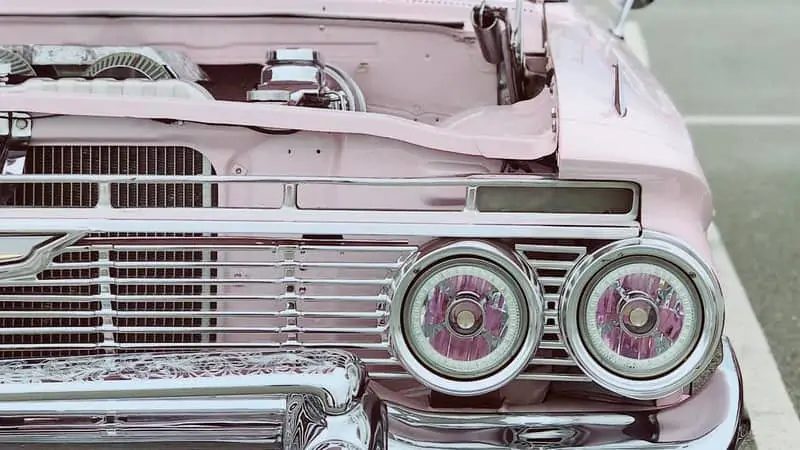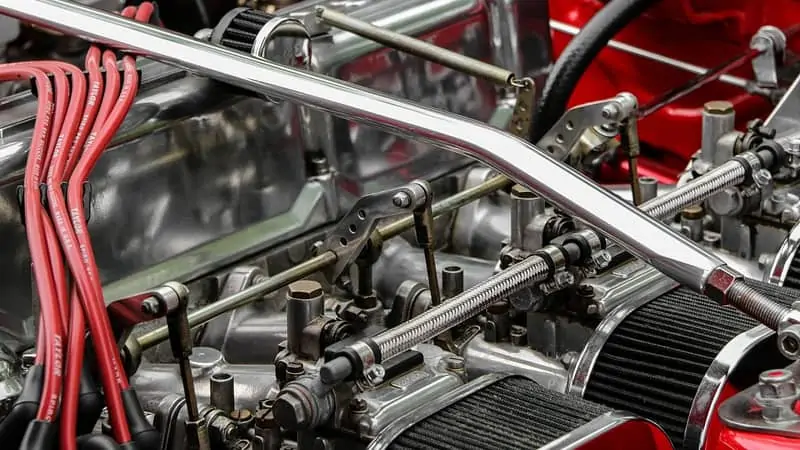The hood is the hinged cover that sits over the engine of a vehicle (front-engine.) It serves a protective purpose and it might become damaged. Apart from how strange it looks to drive a car without a hood, is it also illegal?
It may or may not be illegal to drive without a hood and it all depends on the laws of your location. Some states have specific laws against driving without a hood. Other states either have no laws concerning it or their laws against it come with regulations.
In this article, I am going to discuss the legalities of driving without a hood. I also highlight the dangers of driving without a hood. In conclusion, I will talk about different states and their laws about driving without a hood.
Is Driving Without A Hood Dangerous?

Usually, there are no immediate dangers that follow driving without a hood. If the hood isn’t protecting parts like the batteries and engine, exposure to the elements could cause damages. These parts and others like your wires and radiator cap are also prone to theft.
Pulleys and belts that spin quickly can pick up debris and launch them into the air, posing a danger to pedestrians. If the debris obstructs the vision of other cars on the road, accidents may occur.
If you must drive without a hood for an extended period of time, make sure the sections that are easily removed are secured. Tape your reservoir caps to prevent them from coming loose. If it breaks open, the fluids within will be lost.
Cover the electrical parts in the event of a heavy downpour to prevent water from getting into places that it shouldn’t. The primary danger that driving without a hood poses is to your finances. You will have to fix whatever the sun or rain damages.
Is It Illegal To Drive Without A Hood?
Besides the protection the hood gives to the performance components of the vehicle, it also makes car maintenance and repairs more convenient. A hood can also prevent some impacts in the event of an accident.
Steel and aluminum are the typical materials used to construct car hoods. Certain cars have hoods made from fiberglass, dry carbon, or carbon fiber.
Dents, scratches, and damage to the hinge of the hood are some damages the hood can incur. If these damages persist, you may have to remove your hood until you can replace it. However, you still have to transport yourself from location to location.
Since the legality of driving with or without a hood is different for different locations, the first thing you should do is to contact your law enforcement. Understand what the laws are regarding driving without a hood and try to keep them.
Even if there are no specific legal prohibitions about driving without a hood, a majority (if not all) of U.S. States have statutes prohibiting the operation of unsafe motor vehicles. An “unsafe motor vehicle” could be interpreted to cover a hoodless car, and some law enforcement officers may cite you for driving without a hood.
In Which States Is Illegal To Drive Without A Hood?
- Maryland:
Under the Maryland Transportation Code, a vehicle hood must be present when operating on state highways. A driver must also have a front bumper when operating on public roads in Maryland.
- Oregon:
Despite the fact that a hood is generally not included in the required equipment laws in this state, there is an exception where a streetcar hood can be removed. The presence of this exception indicates that the car hood should not be removed.
States That Have Regulations For Driving Without A Hood
Although there is no mention of a hood in their required vehicle equipment law, they have some criteria that must be met before you can drive without a hood. In spite of this provision, your state may still consider driving without a hood to be unsafe, and therefore illegal. The states with these regulations are:
- West Virginia: Technically, it is not illegal to drive without a hood. The condition that you must meet is that your engine must be equipped and adjusted to prevent escaping fumes or smoke.
- North Dakota: Technically, it is not illegal to drive without a hood. The condition that you must meet is that your engine must be equipped and adjusted to prevent escaping fumes or smoke.
- Alaska: Technically, it is not illegal to drive without a hood. The condition that you must meet is that your engine must be equipped and adjusted to prevent escaping fumes or smoke.
- Hawaii: Inspections and certifications of modified vehicles are required by the county agency.
Always ask the cops before driving without a hood.
States That Have No Laws Against Driving Without A Hood

Below are the states that don’t specify a hood in their mandatory vehicle equipment laws:
Alabama
Arizona
Arkansas
California
Connecticut
Delaware
Florida
Georgia
Idaho
Illinois
Iowa
Kentucky
Kansas
Louisiana
Massachusetts
Maine
Minnesota
Michigan
Montana
Mississippi
Nebraska
New Hampshire
Nevada
New Mexico
New Jersey
North Carolina
New York
Ohio
Oklahoma
Pennsylvania
Rhode Island
South Dakota
South Carolina
Tennessee
Texas
Utah
Vermont
Virginia
Washington
Wisconsin
Wyoming
Even if there are no specific legal prohibitions about driving without a hood, you should be aware that your state’s law enforcement officers may still view driving a vehicle without a hood as unsafe. This could lead to a citation.
Because of the risk of damage to the engine and other parts, it is not advisable to drive without a hood for days, a week, or even weeks. The cops may also ask you to pull over and you may receive a ticket or citation. Driving at night does not exclude you from being pulled over.
If it is unavoidable to drive without a hood, make sure you limit your driving as much as possible. Do not drive in extreme weather conditions. Always confirm the regulations from your law enforcement or a lawyer, and replace your hood as soon as possible.

